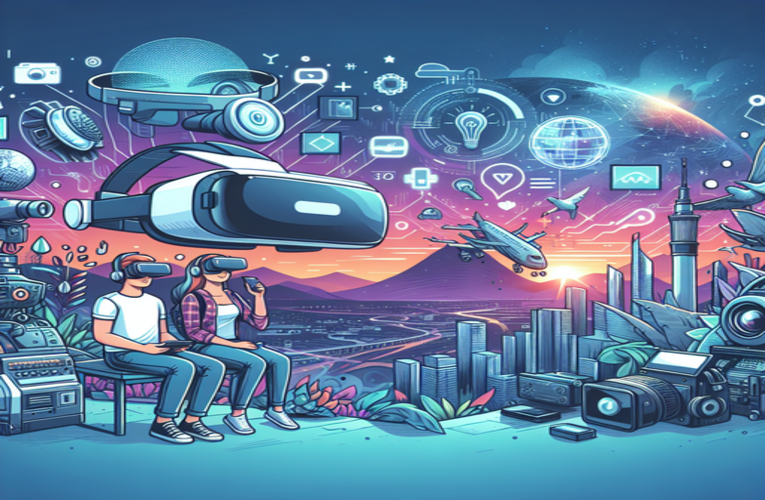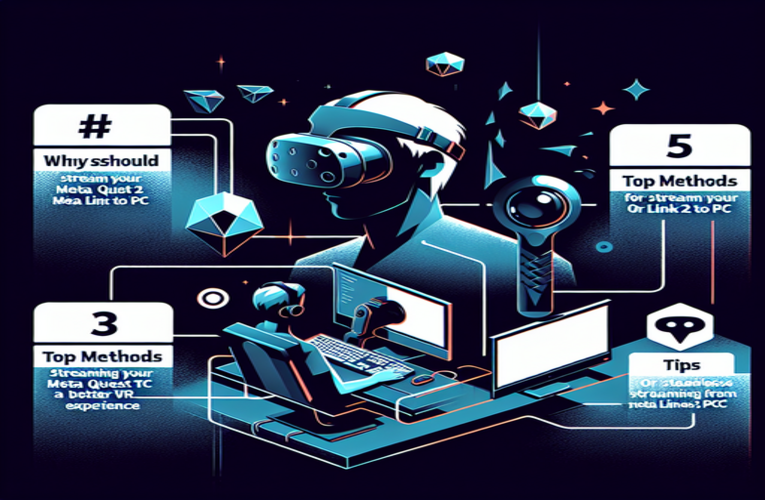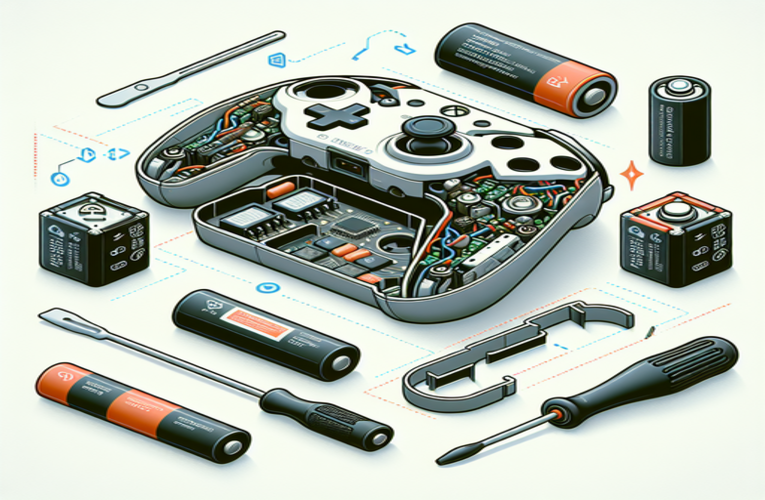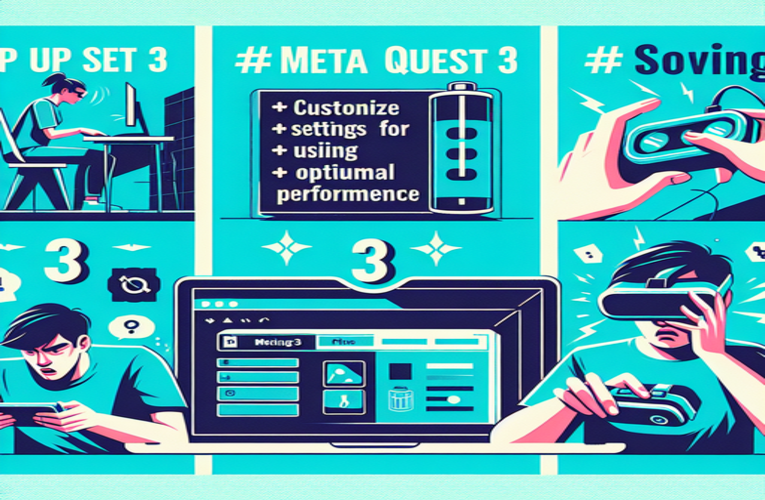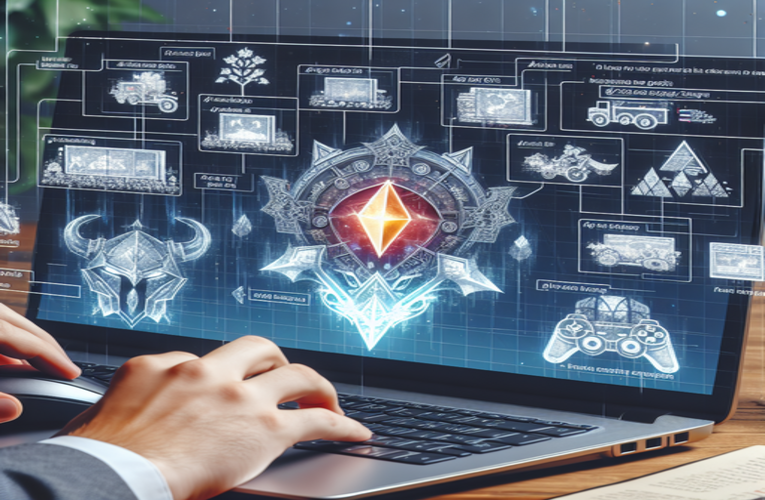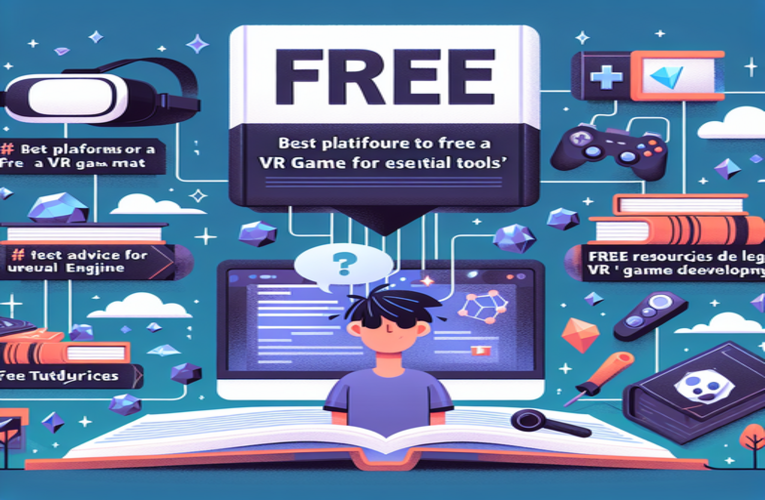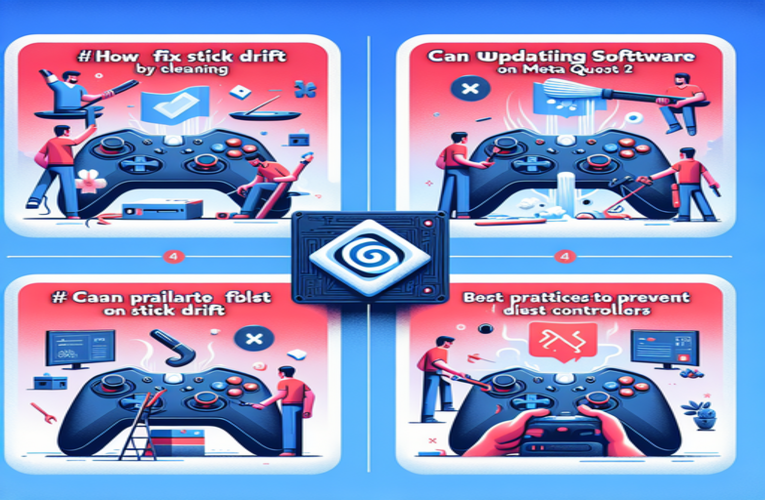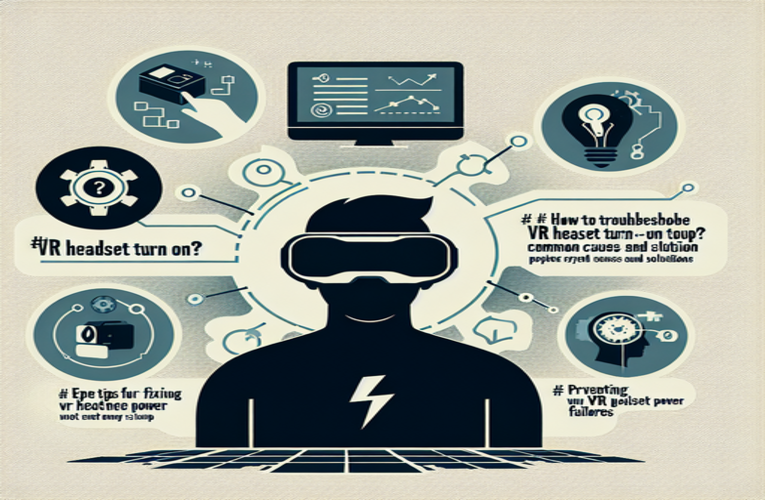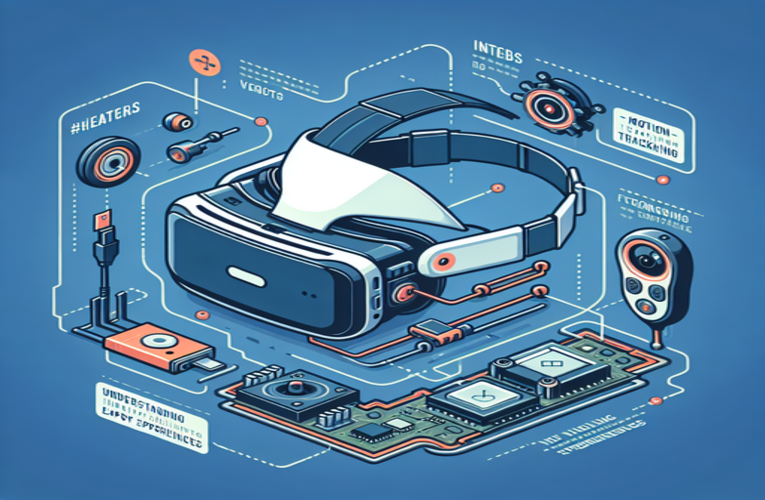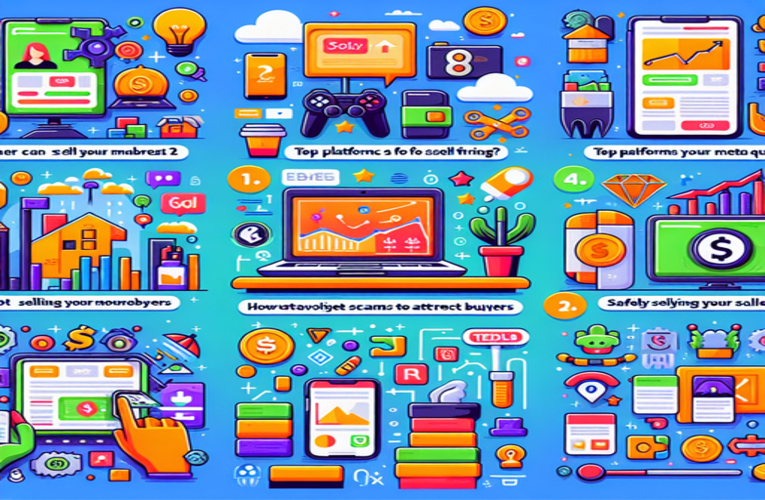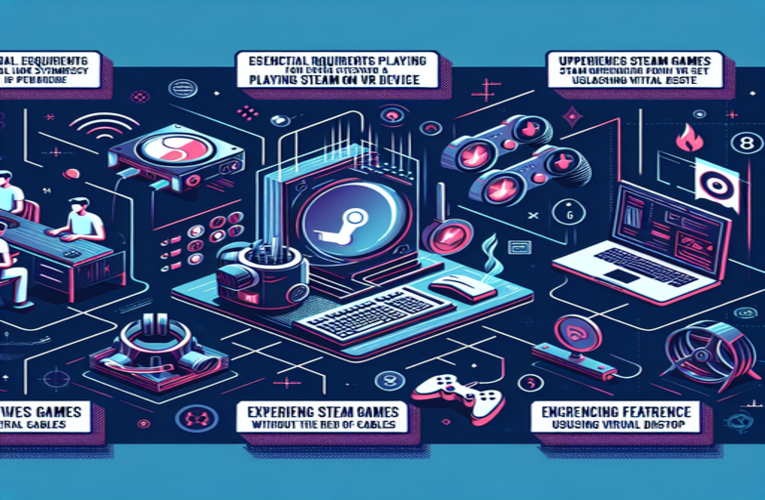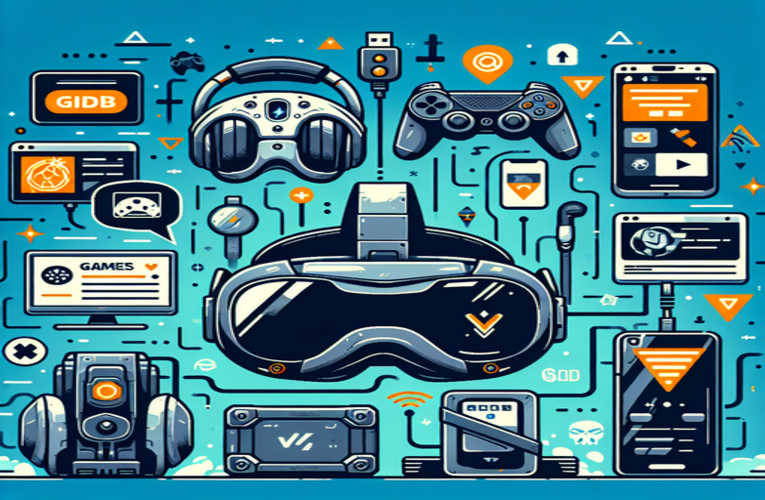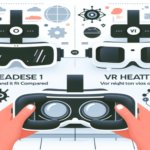Meta Quest 2 vs Oculus Quest 2: Key Differences and Upgrade Benefits
Have you been pondering the difference between the Oculus Quest 2 and the Meta Quest 2? You’re not the only one! With the rebranding of Oculus to Meta, many are curious whether the Meta Quest 2 offers more than just a new name compared to the Oculus Quest 2. While the hardware remains consistent, this change embodies Meta’s ambitious vision for the metaverse, signaling a deeper commitment to advancing virtual reality experiences. In this article, we’ll unpack any distinctions between the Oculus Quest 2 and Meta Quest 2, exploring how this evolution might enhance your VR journey and whether it’s time to embrace the Meta branding.
Exploring Key Differences
- Rebranding Significance: The shift from Oculus to Meta highlights a strategic focus on building the metaverse.
- Software and Feature Updates: Meta Quest 2 continues to receive updates that may introduce new functionalities and improvements over time.
- Integration with Meta Platforms: Enhanced connectivity with Meta’s suite of social and collaborative tools.
- Support and Compatibility: Ongoing support ensures that both Oculus Quest 2 and Meta Quest 2 users continue to receive the latest VR experiences.
Understanding these factors will help you determine if there’s more to the Meta Quest 2 than meets the eye and whether it offers benefits that enhance your virtual reality adventures. Let’s delve deeper to help you make an informed choice!
Why Did Oculus Quest 2 Become Meta Quest 2 and What Are the Main Differences?
The rebranding of Oculus Quest 2 to Meta Quest 2 marks a pivotal moment in Meta’s vision to build the metaverse—a unified virtual space that enhances social connection and collaboration. While the hardware specifications remain largely unchanged, this shift emphasizes Meta’s commitment to expanding virtual reality beyond gaming into realms like social interaction, education, and remote work.
Understanding the Rebranding
In 2021, Facebook Inc. rebranded itself as Meta Platforms Inc., signaling a strategic pivot towards developing the metaverse. The Oculus brand, known for its pioneering VR headsets, transitioned to Meta Quest to align with this new direction. This rebranding is more than cosmetic; it signifies an integrated approach to virtual experiences that are deeply connected with Meta’s ecosystem.
Key Enhancements in Meta Quest 2
While the Meta Quest 2 retains the powerful Qualcomm Snapdragon XR2 processor and 6 GB of RAM, several software and feature updates distinguish it from its predecessor:
– Enhanced Social Collaboration: Integration with Horizon Workrooms allows users to engage in virtual meetings with realistic avatars, facilitating remote collaboration in immersive environments.
– Expanded Educational Opportunities: Platforms like ENGAGE XR offer interactive learning experiences, from virtual classrooms to detailed scientific simulations.
– Improved Software Optimization: Recent updates have increased system performance, providing up to 15% smoother operation in applications and games.
– Advanced Hand Tracking: Upgraded hand tracking technology delivers more intuitive interactions, enhancing experiences in creative and productivity apps.
Is It Worth Investing in Meta Quest 2 or Staying with Oculus Quest 2?
Choosing between the Oculus Quest 2 and the Meta Quest 2 depends on your priorities and how you use virtual reality:
– Comfort Enhancements: The Meta Quest 2 features improved straps and ergonomic padding that reduce pressure during extended sessions—a significant benefit for users who spend long periods in VR for gaming or fitness activities like using Supernatural.
– Future-Proofing with Software Updates: Meta Quest 2 is poised to receive ongoing updates that enhance functionality and integrate deeper with Meta’s platforms. For example, games like Beat Saber and Medal of Honor: Above and Beyond now offer even more immersive experiences due to software optimizations.
– Social Integration: With a focus on the metaverse, Meta Quest 2 provides enriched social features, making it ideal for users interested in interactive platforms and virtual collaboration.
If you primarily enjoy casual VR experiences and are satisfied with your current device, the Oculus Quest 2 remains a solid choice. However, for those seeking enhanced comfort, performance, and social capabilities, upgrading to the Meta Quest 2 could significantly enhance your virtual reality experience.
The Impact of Software Updates on Performance
Regular software updates are crucial for maximizing the performance and features of your VR headset:
Performance Improvements
Updates often optimize graphics and system responsiveness. For instance, software version v29 enhanced the fluidity of dynamic action games, making experiences more immersive and reducing potential disruptions during gameplay.
Bug Fixes and Stability Enhancements
Addressing software bugs is essential for a seamless VR experience. In version v33, Meta resolved issues that caused applications to close unexpectedly during multiplayer sessions, improving reliability in apps like Rec Room.
Introduction of New Features
Updates can unlock new capabilities. Enhanced hand tracking in recent versions has made interactions in creative applications more natural. Additionally, multitasking features have transformed the headset into a versatile tool suitable for both productivity and entertainment.
Practical Tips for Updating
To ensure optimal performance:
– Regularly check for software updates in your device settings.
– Review update notes to understand new features and improvements.
– After major updates, consider giving developers time to address initial bugs reported by early users before installing.
Maintaining the latest software version ensures you benefit from performance enhancements, stability fixes, and new functionalities that enrich your VR experience.
Should You Switch from Oculus Quest 2 to Meta Quest 2?
For avid VR users contemplating an upgrade, the Meta Quest 2 offers several significant improvements:
– Advanced Performance: Equipped with the Qualcomm Snapdragon XR2 processor and 6 GB of RAM, the Meta Quest 2 delivers enhanced graphics and smoother gameplay, particularly noticeable in resource-intensive titles.
– Improved Comfort: The redesigned headset reduces pressure on the forehead and accommodates users who wear glasses, making extended VR sessions more comfortable.
– Expanded Content Library: Access over 300 titles, including exclusive additions to popular games like Beat Saber and innovative fitness apps like Supernatural.
To decide if upgrading is right for you:
– Assess Your Usage: If you engage with demanding games, immersive simulations, or collaborative virtual environments, the Meta Quest 2’s enhancements can greatly enhance your experience.
– Try Before You Buy: Visit a retail location to experience the Meta Quest 2 firsthand and evaluate the improvements in comfort and performance.
– Consider Longevity: Upgrading positions you to take full advantage of future updates and features as Meta continues to develop the metaverse.
For enthusiasts seeking deeper immersion and the latest advancements in VR technology, the Meta Quest 2 represents a worthwhile investment that opens up new possibilities in virtual reality.
Summary
Choosing between the Oculus Quest 2 and the Meta Quest 2 ultimately depends on your virtual reality needs and interests. If you’re exploring the difference between Oculus Quest 2 and Meta Quest 2, and you value enhanced comfort, improved performance, and better social interaction within the metaverse, upgrading to the Meta Quest 2 can greatly enrich your VR experiences. Whether you’re comparing Oculus Quest 2 vs Meta Quest 2 or evaluating the benefits of each model, embracing this latest iteration not only positions you for evolving functionalities but also integrates you deeper into Meta’s vision for the future of virtual interactions.
FAQs
What are the long-term advantages of upgrading to Meta Quest 2 compared to sticking with Oculus Quest 2?
Upgrading to the Meta Quest 2 VR headset provides access to future software updates, advanced virtual reality features, and enhancements that align with Meta’s vision for the metaverse. This ensures a more immersive and integrated virtual experience over time, offering greater capabilities and improved performance beyond what the Oculus Quest 2 can deliver.
Can I expect significant improvements in battery performance with Meta Quest 2 compared to Oculus Quest 2?
While the fundamental battery technology remains consistent between the Meta Quest 2 and the Oculus Quest 2 VR headsets, software optimizations in the Meta Quest 2 may lead to enhanced battery efficiency during intensive virtual applications. However, substantial advancements in battery life will depend on future hardware developments.
How do the educational capabilities of Meta Quest 2 compare to those of Oculus Quest 2?
The Meta Quest 2 leverages enhanced software solutions and platforms like ENGAGE XR to deliver more immersive and interactive educational experiences. This fosters more effective learning opportunities and interactive training environments that are significantly more advanced compared to those available on the Oculus Quest 2.
What specific advancements in hand tracking technology can I expect with Meta Quest 2 over Oculus Quest 2?
The Meta Quest 2 features upgraded hand tracking technology that allows for more sophisticated gestures and interactions within creative and productivity applications. This results in a more intuitive and fluid user interface during virtual activities, enhancing the overall user experience beyond what the Oculus Quest 2 offers.
Are there any unique social features in Meta Quest 2 that are not available in Oculus Quest 2?
Yes, the Meta Quest 2 introduces enhanced social features and seamless integration with Meta’s social platforms, such as Horizon Workrooms. These features enable richer user interactions and collaborative virtual environments, providing a more advanced and engaging social experience compared to the Oculus Quest 2.
